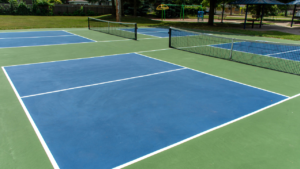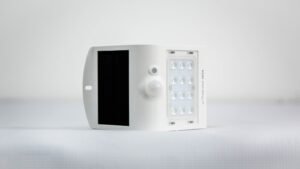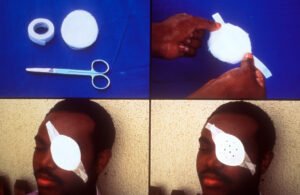Pickleball, a delightful hybrid of tennis, badminton, and ping pong, has taken the recreational sports world by storm. With its relatively simple rules and intense gameplay, enthusiasts of all ages have flocked to the courts, paddle in hand, ready for a thrilling match. However, amidst the fast-paced action and competitive spirit, one crucial aspect often goes overlooked: the importance of medical time-outs. As frivolous as it may seem, understanding when and why to call a time-out can make all the difference between a minor setback and a major injury. So, grab your pickleball paddle, and let’s delve into the realm of medical time-outs, uncovering the secrets to staying safe and strong on the court.
Table of Contents
- The Importance of Medical Time-Outs in Pickleball
- Understanding the Signs and Signals for a Medical Time-Out
- Guidelines for Determining When to Call a Medical Time-Out
- Expert Tips for Handling Medical Time-Outs in Pickleball
- Keeping Safety a Priority: The Role of Medical Time-Outs in Pickleball
- Q&A
- Key Takeaways
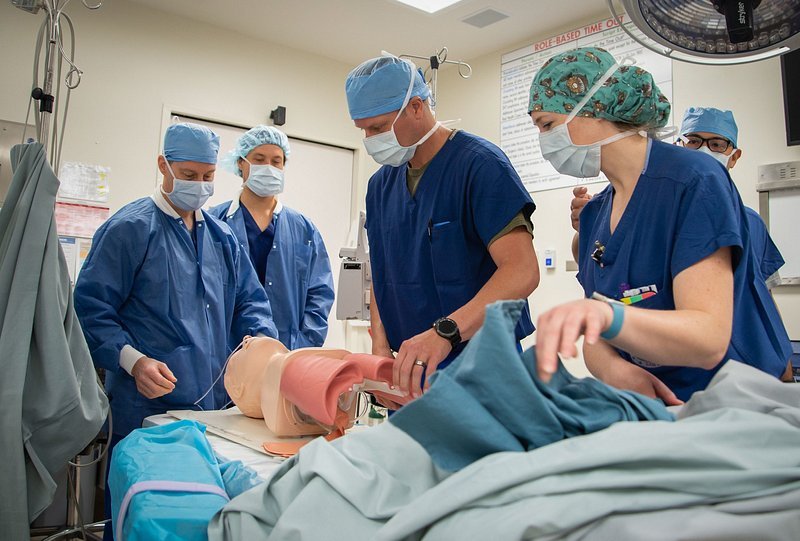
The Importance of Medical Time-Outs in Pickleball
Pickleball, a fast-paced and exhilarating sport, often brings forth intense competition and physical exertion. That’s why it’s crucial to recognize and acknowledge the significance of medical time-outs in this game. These short intervals of respite play a vital role in ensuring players’ well-being and avoiding potential injuries.
Medical time-outs grant individuals the opportunity to assess their physical condition and seek professional assistance if necessary. They allow players to address minor injuries promptly or even prevent further harm by getting medical attention in a timely manner. It’s essential to prioritize one’s health and prevent aggravating injuries during a game, as these may have long-term consequences.
During a medical time-out, players can take the following actions:
- Consult a medical professional: Seeking advice from a healthcare expert can help players better understand their injury and determine appropriate treatment options.
- Apply first aid: Administering basic first aid techniques during the time-out can alleviate pain and reduce the potential risk of further injury.
- Rest and recover: Allowing the body to rest and giving injuries time to heal can aid in the overall recovery process and prevent long-term complications.
- Evaluate playing ability: Assessing one’s physical limitations during a medical time-out is crucial to prevent exacerbating an injury. It’s important to prioritize long-term health over short-term success.
In conclusion, medical time-outs in pickleball are not merely pauses in the game, but vital opportunities to prioritize health and safety. These moments enable players to address potential injuries promptly, seek medical advice, and prevent long-term damage. By recognizing the importance of medical time-outs, both players and the pickleball community can ensure a safe and enjoyable experience on the court.
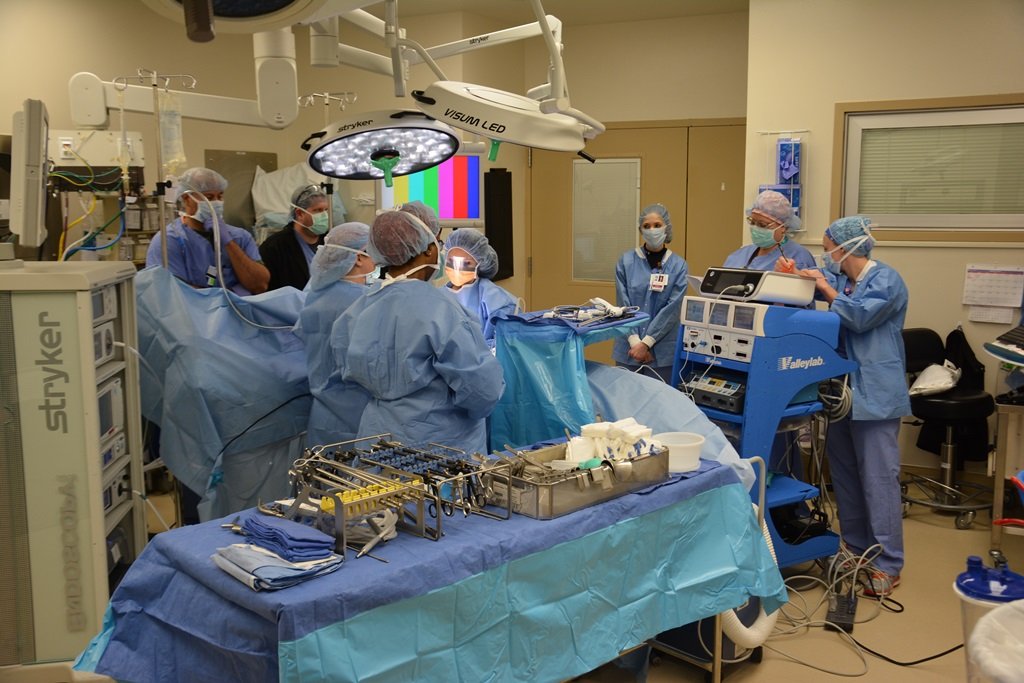
Understanding the Signs and Signals for a Medical Time-Out
When it comes to ensuring patient safety, medical time-outs play a crucial role in preventing errors and ensuring accurate diagnoses. can help medical professionals and patients navigate complex situations and promote effective communication within the healthcare setting.
Recognizing the signs:
- Unusual or unexpected changes in a patient’s vital signs could be an indicator for a medical time-out. This includes sudden spikes in blood pressure, irregular heart rhythms, or abnormal oxygen levels.
- Medical personnel becoming unsure or confused during a procedure may also be a sign that a time-out is necessary. It is essential for healthcare providers to recognize when they need to pause, reassess, and consult with their peers or superiors.
- Any ambiguity or miscommunication about patient identification, surgical site, procedure to be performed, or medical equipment being used requires an immediate medical time-out. This helps to eliminate the risk of errors and avoid potential harm to the patient.
Understanding the signals:
- Verbal cues such as a healthcare provider saying, “Let’s take a moment to ensure we are on the right track” can serve as a signal for a medical time-out. Clear communication among the team members can prevent misunderstandings and foster a safer healthcare environment.
- Visual signals like a raised hand or a pause in the procedure can indicate the need for a time-out during a medical intervention. These visual cues allow all involved parties to understand that something requires immediate attention.
- Standardized protocols within healthcare facilities often define specific events or triggers that warrant a medical time-out. These protocols outline the steps to follow and ensure consistent implementation across the organization.
By , healthcare professionals can prioritize patient safety and reduce the likelihood of medical errors. Remember, accurate communication and swift action are the cornerstones of effective medical time-outs.
Guidelines for Determining When to Call a Medical Time-Out
When the stakes are high and every second counts, players may find themselves in situations where seeking medical attention becomes crucial. To ensure a fair and safe play, there are a few essential guidelines to follow when determining the right time to call a medical time-out:
- Visible signs of distress: Players experiencing severe pain, dizziness, or any visible signs of physical distress should not hesitate to call for a medical time-out. Taking immediate action in such situations can prevent further injury and safeguard the player’s well-being.
- Potential impact on performance: If an injury or illness is hindering a player’s ability to perform at their best, it may be necessary to request a medical time-out. This allows for proper evaluation and, if required, treatment, ultimately leading to a fair competition.
- Safety concerns: In cases where a player’s health is at risk, either due to an unforeseen medical condition or a previously existing one that worsens during the game, it is imperative to call a medical time-out promptly. Prioritizing the player’s safety should always be paramount.
While these guidelines serve as a general framework, it is essential to note that each sport or event may have its own specific rules and regulations regarding medical time-outs. Familiarizing oneself with the governing rules of a particular game is crucial to ensure compliance and fair play.
Expert Tips for Handling Medical Time-Outs in Pickleball
For pickleball players, medical time-outs can be a challenging interruption to the flow of the game. Whether it’s due to an injury, fatigue, or even dehydration, knowing how to handle these situations can make a difference in both safety and sportsmanship. Here are some expert tips to navigate medical time-outs in pickleball:
Assess the situation:
Before panicking or making any hasty decisions, carefully assess the situation. Determine the severity of the injury or condition and whether it requires immediate medical attention. If it’s a minor issue, taking a short break or addressing it with basic first aid might suffice.
Communicate with your partner/opponent:
In pickleball, clear communication is key. If you need to take a medical time-out, make sure to inform your partner/opponent immediately. Respectfully explain the reason for the break, assuring them that you’ll resume the game as soon as possible. Transparency fosters understanding and promotes fair play.
Seek professional help if necessary:
If the injury or condition seems serious or worsens during the time-out, don’t hesitate to seek professional medical help. It’s better to prioritize your health over the game. In case of emergency, call for assistance or ask a bystander to help.
Use the time wisely:
While waiting for medical attention or recovering from a minor injury, use this time-out to strategize, hydrate, and mentally refocus. Take a few deep breaths, stretch gently, or analyze the game so far. Use this pause as an opportunity to come back stronger and more focused than before.
Remember, medical time-outs are a part of sports and taking them seriously is crucial for your well-being. By following these expert tips, you can handle pickleball time-outs confidently and ensure a safe and enjoyable experience on the court.
Keeping Safety a Priority: The Role of Medical Time-Outs in Pickleball
In the fast-paced world of pickleball, where players strive for relentless action and skillful shots, it is crucial to prioritize safety above all else. Enter medical time-outs, an indispensable tool in ensuring the well-being of pickleball athletes during intense matches. These brief pauses in the game not only allow players to attend to their physical ailments but also pave the way for players, coaches, and medical professionals to address potential risks and minimize the occurrence of injuries.
The Benefits of Medical Time-Outs:
- Assessing Injuries: Medical time-outs offer a designated period for players to have their injuries assessed by certified healthcare practitioners. These experts can determine the severity of the injury and provide appropriate advice on further participation.
- Preventing Aggravation: By taking a medical time-out, players can prevent the aggravation of existing injuries. Pausing the game allows them to rest, receive treatment if needed, and evaluate whether they can continue playing without worsening their condition.
- Risk Mitigation: Medical time-outs provide an essential opportunity for coaches and medical professionals to analyze the game’s pace, identify potential hazards, and provide necessary precautions to prevent injuries. This collective effort ensures the overall safety of the players in the long run.
Remember, safety should always be a top priority for everyone involved in pickleball. By embracing the concept of medical time-outs, players can enjoy the game while minimizing the risks associated with injuries.
Q&A
What is a medical time-out in pickleball?
A medical time-out in pickleball is a break in the game where a player can receive medical attention for an injury or illness. It allows players to address their health issues without compromising fairness or safety.
When is it appropriate to call a medical time-out?
A medical time-out should be called when a player sustains an injury or experiences a sudden illness that affects their ability to continue playing. It’s important to prioritize personal well-being and ensure that playing conditions are safe for all participants.
Who can request a medical time-out?
Any player, regardless of their skill level or role in the game, can request a medical time-out if they require immediate medical assistance. The well-being of all players should always take precedence over the game itself.
How long does a medical time-out last?
The duration of a medical time-out can vary depending on the severity of the injury or illness. Typically, a medical time-out lasts for a reasonable amount of time needed for the player to receive the required medical attention and be able to continue playing safely.
What happens during a medical time-out?
During a medical time-out, the injured or ill player will receive medical attention, whether it’s from their own medical personnel or on-site first aid. The focus is on ensuring the player’s condition improves, allowing them to either resume playing or withdraw from the game if necessary.
Can a medical time-out be used strategically?
While a medical time-out is primarily intended to address real health issues, some players may attempt to use it for strategic purposes. However, this is not considered good sportsmanship and goes against the spirit of fair play in pickleball.
What if a player refuses a medical time-out but is clearly in pain or discomfort?
If a player refuses a medical time-out but is visibly in pain or discomfort, it is advisable for other players or officials to intervene and insist on the time-out. The priority should always be the well-being and safety of all participants.
Key Takeaways
As we bid adieu to the world of medical time-outs in pickleball, let us reflect on the significance of knowing when to call it. In this fast-paced and exhilarating sport, knowing your limits and recognizing when your body needs a breather is the ultimate act of self-preservation.
With a neutral tone, we have uncovered the nuances of what prompts players to hit the pause button. From those unsettling ankle twists to the notorious dehydration spells, pickleball enthusiasts worldwide are learning to embrace the invaluable concept of medical time-outs.
Just like a dramatic intermission in a captivating play, these brief respites in the heat of the game allow players to realign their focus and recharge their spirits. A momentary lapse, perhaps, but one that can make all the difference in the outcome of a match.
Through this creative exploration, we have learned that medical time-outs transcend the physical realm. They speak to the resiliency of the human spirit and the importance of our well-being. It is a reminder that even in the midst of battle, our bodies demand and deserve the utmost care and attention.
So, as players, coaches, and enthusiasts alike, let us carry on with renewed understanding and appreciation for the medical time-outs in pickleball. Let it serve as a testament to our commitment to the sport we love and our dedication to the vitality that keeps us going. And when that decisive moment arrives, when your body screams for a break, remember to listen carefully. Answer the call and cherish the pause. For within that fleeting respite lies the potential for a triumphant return and an unforgettable pickleball journey.
As an affiliate, my content may feature links to products I personally use and recommend. By taking action, like subscribing or making a purchase, you’ll be supporting my work and fueling my taco cravings at the same time. Win-win, right?
Want to read more? Check out our Affiliate Disclosure page.

